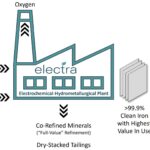The Best of Both Worlds: Combining Education and Industry Experience at Power Engineering Universities
Introduction
Power engineering universities have long been a crucial component of the energy industry’s talent pipeline. By providing students with a comprehensive education in power engineering, these institutions equip the next generation of professionals with the skills and knowledge needed to design, build, and operate the complex systems that power our world. However, the traditional education-industry dichotomy is being challenged by the need for students to gain hands-on experience in the industry while still pursuing their studies.
The Benefits of Industry Experience
Industry experience is essential for power engineering students, as it provides them with a deeper understanding of the practical applications of theoretical concepts. By working on real-world projects and collaborating with industry professionals, students can develop the skills and expertise needed to succeed in the industry. Moreover, industry experience can help students to build a network of contacts and connections that can be invaluable in their future careers.
Combining Education and Industry Experience
One of the most effective ways to combine education and industry experience is through internships and co-op programs. These programs allow students to work part-time or full-time in the industry while still pursuing their studies, gaining valuable experience and building their professional networks. Additionally, many power engineering universities offer capstone projects that allow students to work on real-world projects with industry partners, providing them with hands-on experience and the opportunity to apply their skills and knowledge in a practical setting.
Industry-Recognized Power Engineering Universities
Several power engineering universities have earned recognition for their industry-focused programs and strong industry connections. For example, the University of California, Berkeley, has a highly respected power engineering program that has produced many industry leaders. Similarly, the University of Texas at Austin has a strong reputation for its power engineering program, which has produced many graduates who have gone on to successful careers in the industry.
Conclusion
In conclusion, combining education and industry experience is essential for power engineering students. By gaining hands-on experience in the industry, students can develop the skills and expertise needed to succeed in the industry. Power engineering universities that offer industry-focused programs and strong industry connections can provide students with the best of both worlds, equipping them with the knowledge and skills needed to succeed in this complex and dynamic field.
FAQs
Q: What are the benefits of combining education and industry experience?
A: Combining education and industry experience provides students with hands-on experience and the opportunity to apply theoretical concepts in a practical setting, while also building a network of contacts and connections that can be invaluable in their future careers.
Q: How can students gain industry experience?
A: Students can gain industry experience through internships, co-op programs, and capstone projects that allow them to work on real-world projects with industry partners.
Q: Which power engineering universities offer industry-focused programs?
A: Several power engineering universities offer industry-focused programs, including the University of California, Berkeley, and the University of Texas at Austin.
Q: What are the benefits of attending a power engineering university with a strong industry connection?
A: Attending a power engineering university with a strong industry connection can provide students with access to industry professionals, job opportunities, and a network of contacts and connections that can be invaluable in their future careers.






